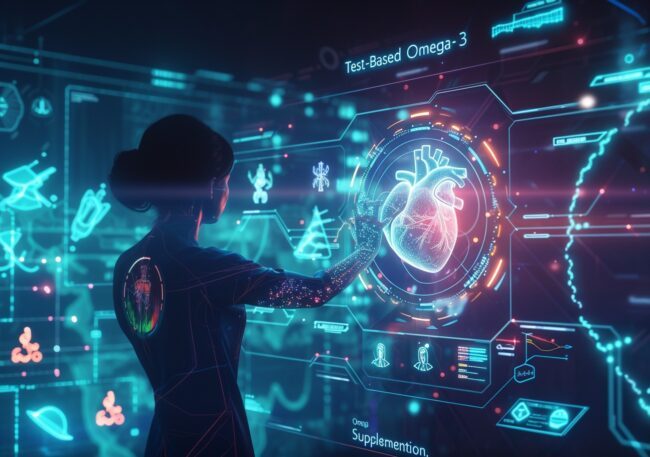Understanding Genomic Data
Genomic data is the information encoded in the DNA of living organisms. It provides insights into genetic variations that can lead to different traits, susceptibility to diseases, and responses to treatments. Analyzing this data is crucial for advances in medicine, agriculture, and biology.
This data is massive. A single human genome contains over three billion base pairs. Traditional methods of analysis, even the most sophisticated ones, struggle under such weight. This is where artificial intelligence comes in. AI offers tools to sift through vast data sets, uncovering patterns and relationships that might otherwise go unnoticed.
The Need for AI in Genomics
The complexity of genomic data presents several challenges:
– Volume: The sheer size of genomic data sets means traditional analysis techniques fall short.
– Complexity: Genomic variations involve intricate interactions that are not always linear.
– Speed: In healthcare, the faster genetic data can be analyzed, the faster patients can receive personalized treatments.
These challenges create a perfect storm for AI solutions. AI methodologies can not only process data faster but can also learn from it, improving with experience.
How AI Transforms Genomic Analysis
AI and machine learning have several applications in genomic data analysis:
- Data Processing
AI algorithms can preprocess data. For instance, when sequencing genomes, enormous amounts of raw data come in. AI can help clean and organize this before deeper analysis. This is critical as accurate preprocessing enhances downstream results.
- Variant Calling
After sequencing, identifying genetic variants is the next step. AI systems can compare sequences to reference genomes and detect variations. Techniques like deep learning excel in distinguishing real mutations from sequencing errors, significantly boosting accuracy.
- Disease Prediction
AI can correlate genetic variants with specific diseases. By analyzing patterns in large datasets, machine learning models can identify risk factors for conditions such as cancer, diabetes, and heart disease. This predictive capability opens the door to preventive medicine.
- Drug Discovery
AI accelerates drug discovery processes by predicting how different genetic variations affect drug response. Understanding these interactions helps in developing personalized medicine tailored to individual genetic profiles. For instance, an AI model might analyze how a certain variant responds to various treatments, saving time and resources in clinical trials.
- Genomic Annotation
Annotating genomes involves assigning biological information to specific gene regions. AI algorithms can automate this process, identifying gene functions and pathways faster than humans can. Deep learning models can analyze existing annotated data, learning from it to make predictions on unannotated regions.
The Challenges of Implementing AI in Genomics
Integrating AI into genomic analysis isn’t without its difficulties:
– Data Privacy: Genomic data is sensitive. There are ethical concerns surrounding how it is used and who has access to it.
– Interoperability: Various platforms and tools are used in genomic analysis. Ensuring AI solutions can work across these environments requires significant effort.
– Transparency: Many AI models, particularly deep learning ones, work as black boxes. Understanding how they arrive at specific conclusions can be difficult, leading to hesitance in their adoption.
The Future of AI in Genomic Data Analysis
The trajectory for AI in genomic analysis is promising. As the field moves forward:
– Increased Collaboration: We will likely see more partnerships between AI companies and genomic researchers. This collaboration will enhance the quality and applicability of AI tools.
– User-Friendly Tools: The future will bring more intuitive interfaces for AI tools that empower researchers without extensive technical backgrounds.
– Regulatory Frameworks: As AI becomes more integrated into genomics, regulatory bodies will craft guidelines for its use, particularly concerning ethical and privacy concerns.
A Unique Perspective on AI’s Role
While many discussions focus on what AI can do, it’s worth considering its role as an enabler. AI doesn’t replace human expertise but enhances it. Researchers are still the brains behind discoveries, while AI provides the muscle to handle data-heavy tasks.
This collaborative dynamic is essential for progressing in fields that require both human creativity and machine efficiency. For the researcher who might feel overwhelmed by data, AI is a partner that offers support and insight.
Conclusion and Final Thoughts
The integration of AI into genomic data analysis signifies a paradigm shift in how we understand biology and medicine. By leveraging machine learning algorithms, researchers can derive insights from complex datasets efficiently. We’re only scratching the surface of what is possible.
As this technology evolves, it promises to refine our understanding of genetics, leading to breakthroughs in health, disease prevention, and potentially the future of personalized medicine. The collaboration between human intelligence and artificial intelligence will likely lead to discoveries we cannot yet imagine.

